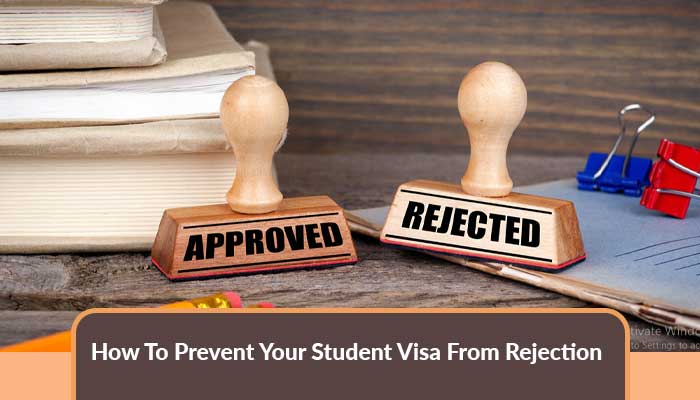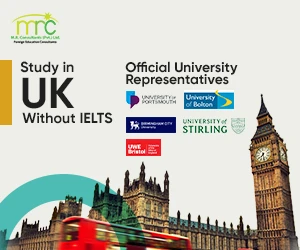
A study visa, also known as a student visa, is an essential document required when applying to study abroad. It serves as official permission from the host country's government that allows you to enter, reside, and pursue your education there. It not only allowing you to enroll in a recognized educational institution and pursue your chosen program of study but also verifies that you meet the requirements to study in that particular country.
Reasons Of Study Visa Rejection
There can be various reasons why a student visa application may be rejected. It's important to note that the specific reasons can vary depending on the country and its immigration policies. Here are some common reasons for student visa rejections:
-
Insufficient or incorrect documentation
-
Failing to provide the required documents or submitting incomplete or inaccurate information can lead to visa rejection. It is crucial to carefully review the application guidelines and ensure that all the necessary documents are provided in the correct format.
-
-
Lack of financial evidence
-
Many countries require proof of sufficient funds to cover tuition fees, living expenses, and other related costs. If the financial documents provided are deemed inadequate or unverifiable, the visa application may be rejected.
-
-
Inability to demonstrate strong ties to the home country
-
Immigration authorities want to ensure that students have sufficient reasons to return to their home country after completing their studies. If the applicant fails to demonstrate strong ties, such as family, property, employment, or other commitments, the visa application may be rejected.
-
-
Lack of academic preparedness or relevance
-
Some countries may consider an applicant's academic background and preparedness for the chosen course of study. If an applicant fails to meet the required academic qualifications or if their chosen course of study does not align with their previous education or career goals, the visa application may be rejected.
-
-
Failure to meet health and character requirements
-
Some countries have health and character requirements for visa applicants. If an applicant fails to meet these requirements, such as having a contagious disease or a criminal record, their visa application may be rejected.
-
Tips To Avoid Study Visa From Rejection
To increase your chances of avoiding a study visa rejection, consider the following tips:
-
Thoroughly research and understand the specific visa requirements and application process for the country you plan to study in.
-
Begin the visa application process well in advance to allow ample time for gathering all the required documents.
-
Fill out all application forms accurately and truthfully, providing all the necessary information.
-
Verify that the documents are up to date and meet the specified criteria.
-
Pay close attention to financial requirements and provide clear evidence of your ability to cover tuition fees, living expenses, and other costs.
-
Write a compelling study plan and statement of purpose that clearly outlines your motivations for studying abroad, your career goals, and how the chosen course of study aligns with your aspirations.
Steps To Address The Visa Rejection Situation
If your student visa application gets rejected, you may feel disappointed and frustrated. However, you can take the following steps to address the situation:
-
Request a detailed explanation for the visa rejection. This will help you understand the specific reasons behind the decision.
-
If you believe there has been a misunderstanding or error in the decision, you can contact the appropriate embassy, consulate, or immigration office to seek clarification or request reconsideration of your application.
-
Take the time to carefully review your initial application and address any deficiencies or weaknesses that might have contributed to the rejection.
-
If allowed, you can choose to reapply for a student visa. Take into account the reasons for the rejection and make necessary improvements to your application.
-
Explore other educational institutions or countries that offer similar programs of study and have more favorable visa policies.
Dealing with visa rejection can be challenging, but it's important to stay positive and seek support from family, friends, or contact to an education consultant. They can provide guidance, encouragement, and help you navigate through the process of reapplying or exploring other options.



.gif)


 1713
1713
 0
0
























